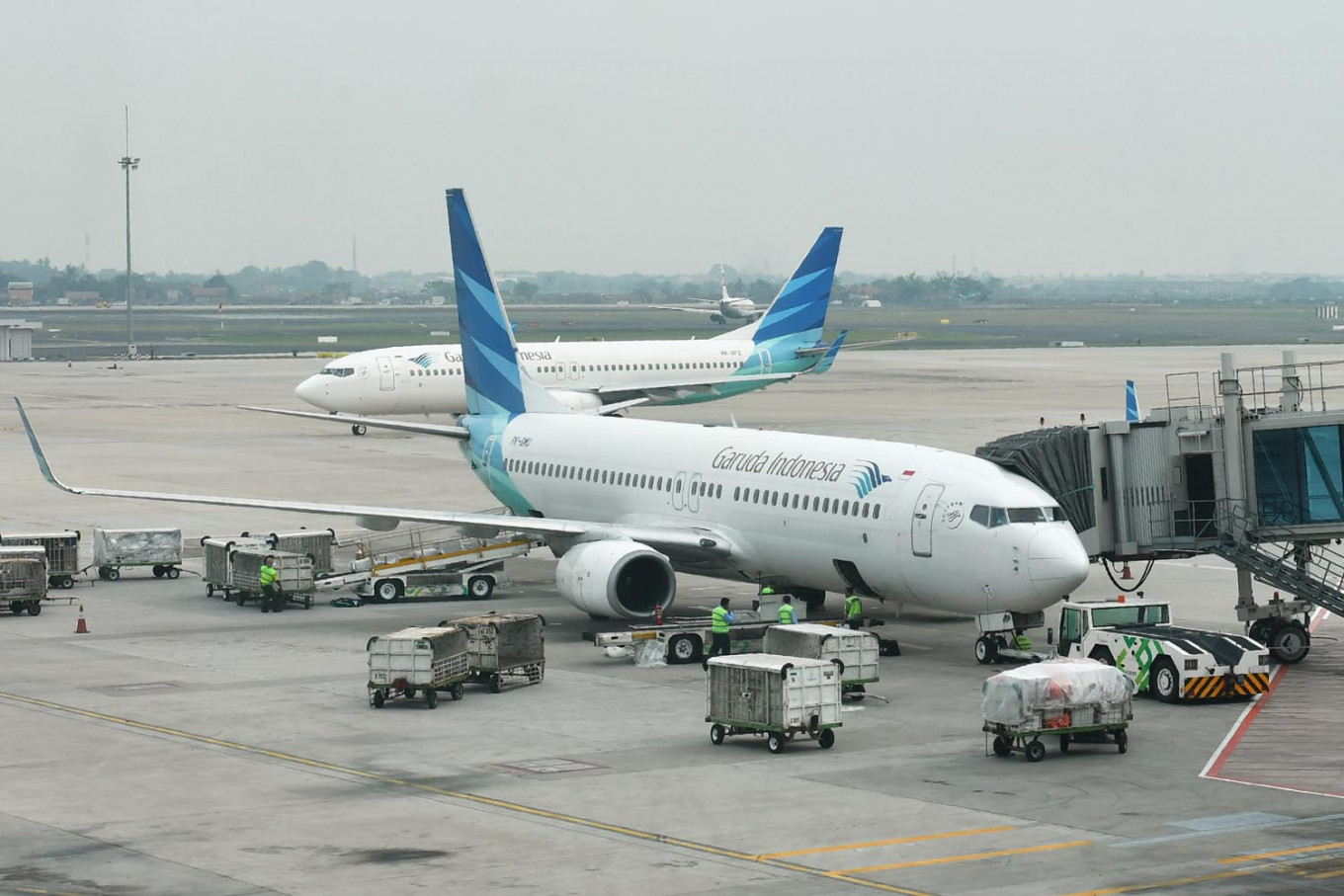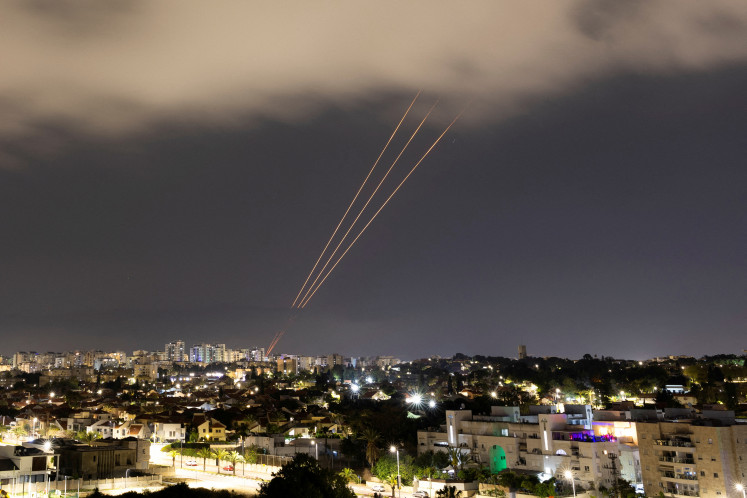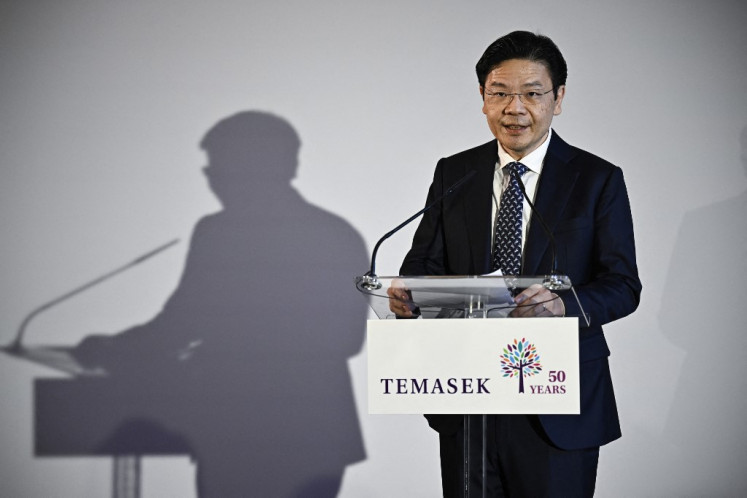Businesses worry easing restrictions could prolong recovery
The national COVID-19 task force issued a circular letter on May 6 exempting state officials, private sector workers and state-owned enterprise (SOE) employees from the government’s ban on travel to and from virus red zones.
Change Size
 This picture taken at Jakarta's international airport in Tangerang outside Jakarta on November 3, 2018 shows two planes from Indonesia's national airline Garuda. (AFP/Adek Berry)
This picture taken at Jakarta's international airport in Tangerang outside Jakarta on November 3, 2018 shows two planes from Indonesia's national airline Garuda. (AFP/Adek Berry)
B
usinesspeople and economists have expressed concerns about the government’s decision to ease travel restrictions, saying the policy could backfire and prolong the economic recovery from the coronavirus downturn.
Indonesia Chamber of Commerce and Industry (Kadin) deputy chairwoman Shinta Kamdani, told The Jakarta Post that easing restrictions might not have the desired effect on the country’s economy because the virus could continue to spread.
Transportation operators told the Post they did not expect any immediate uptick in economic activities from the government’s new travel policy as people still considered it risky to travel during a pandemic.
“Allowing people to move freely could heighten the risk of further contagion and even increase fatality rates. This will prevent market confidence in Indonesia from recovering as easily and will make it more difficult to allow the economy to run as usual,” Shinta said.
The national COVID-19 task force issued a circular letter on May 6 exempting state officials, private sector workers and state-owned enterprise (SOE) employees from the government’s ban on travel to and from virus red zones.
Read also: Easing restrictions? Not so fast, experts say
The move came as Indonesia saw its highest daily increases in COVID-19 cases on May 5 and May 9, despite the task force’s claim that “new cases have rapidly slowed and flattened” on April 27. President Joko “Jokowi” Widodo has “targeted” a flattening of COVID-19 cases in May, expecting transmission to be moderate in June and to be low in July.
“We understand that loosening mobility restrictions could bode well for the economy in general, but we think the positive impact of this policy is limited as demand remains low,” Shinta said.
Bus operator Lorena Transport managing director Dwi Ryanta Soerbakti said the change in policy would have little effect on his business because people were still hesitant to travel.
“This policy will not have any significant impact on [transportation] operators. I do not think this policy is right, because it will only prolong the pandemic,” Dwi said. “Demand for travel will not increase [because of eased travel restrictions]. This will only lead to a bigger risk of the pandemic being prolonged.”
Lorena Transport and Karina Transport will not yet resume the operation of their inter-city and inter-province services. The bus operator is currently operating 10 percent of its normal Greater Jakarta services, with health protocols that include disinfection before and after trips, compulsory mask wearing, and filling only half of the buses’ seating capacity.
Read also: Jakarta's curve flattened? Experts question government's claim
The government issued Transportation Ministerial Regulation No. 25/2020 on April 23 to ban the Idul Fitri exodus (mudik) to and from COVID-19 red zones, areas under large-scale social restrictions (PSBB) and agglomeration areas from April 24 to May 31. Travel for essential needs was exempted.
Center of Reform on Economics (CORE) economist Mohammad Faisal urged the government to be consistent and firm with its own regulations instead of backtracking by allowing for exemptions. For the time being, he said, the government needed to focus on containing the spread of COVID-19 rather than reopening the economy.
Faisal said people, who were key to the resumption of the economy, were still concerned about COVID-19 as the number of confirmed cases was still on the rise domestically and globally. They had therefore restricted their spending and movement, he added.
“The government is rushing to restart the economy when they know very well that it will take some time to recover it, just like what they had planned in the government regulation in lieu of law [Perppu],” he said. The Perppu allows the government to enact economic recovery measures until 2021.
“The recovery process will be much faster if the government remains consistent about its own regulations,” added Faisal.
Read also: Explainer: What’s allowed and what’s not in Indonesia's ‘mudik’ ban
Fitch Solutions wrote in a research note that the Indonesian government’s response to COVID-19 had been “slow, unclear and fractured” thereby prolonging both public health and economic difficulties.
Fitch Solutions researchers expect Indonesia’s economy to contract 1.3 percent this year, lower than the government’s worst-case scenario of 0.4 percent contraction. Indonesia’s annual GDP growth slowed more than expected to 2.97 percent in the first quarter of this year, the weakest in 19 years and lower than the government’s projection of over 4 percent growth.
“We have factored in a slow recovery in Indonesia as the country is still in the early stages of combating the virus and may need to remain under lockdown for a prolonged period,” Fitch Solutions said in a research note.
The Indonesia National Air Carrier Association (INACA) said the travel exemptions had prompted several flights to reopen. The association announced, however, that airlines were still complying to the mudik ban stipulated in the Transportation Minsiterial Regulation.
“After the COVID-19 task force issued a detailed letter on exemptions for travel, there were only a few routes that were opened and not all flights are back for operations,” said INACA chairman Denon Prawiraatmadja.
Read also: Indonesian airlines carry out layoffs to cope with COVID-19 pressures
Flag carrier Garuda Indonesia and its subsidiary, low-cost carrier Citilink Indonesia, have reopened flights previously prohibited in the transportation regulation to serve exempted travelers.
“We require passengers to provide information regarding their COVID-19 status,” said Garuda Indonesia president director Irfan Setiaputra. Passengers are required to provide supporting documents such as a letter of duty or hospital referral letter, and flights will only fill 50 percent of their seating capacity in compliance with the regulation, he added.









